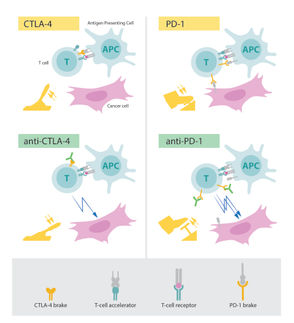Myriad Genetics Reports Phase II Data on Lead Compound MPC-7869 at Recent Cancer Research Meeting
Myriad Genetics, Inc. (Nasdaq: MYGN) announced today that Phase IIa clinical trial data on its lead cancer compound, MPC-7869 was presented at the recent annual meeting of the American Association for Cancer Research.
The study by lead author Michael B. Lilly, M.D. of Loma Linda University, was entitled, "Multi-Dose Phase I-IIa Trial of E-7869 in Prostate Cancer Patients: Safety and Time to PSA Progression (TPSAP)". The presentation reported 4-month findings from 23 late stage prostate cancer patients who went on to receive up to 32 weeks of dosing with MPC-7869. The trial was open-label, using biweekly escalation of MPC-7869 oral daily dose levels. Generally, dose levels increased from 200mg per day to 1200 mg per day during the first 16 weeks. Most patients went on to receive 800mg twice daily for an additional 16 weeks. The safety and tolerance of daily oral doses was reported in the presentation as well as analysis of PSA level data collected throughout the study.
Of the 23 prostate cancer patients enrolled, 13 had a PSA level greater than 5ng/ml and rising (greater than 50% increase over the prior 4-6 months) at entry into the study. Of these, five (39%) had stable PSA values after 120 days of treatment with MPC-7869. Five of the enrolled prostate cancer patients had a PSA level less than 5 ng/ml that was rising at entry into the study. Three of these five (60%) had less than a 50% increase in their PSA level through 120 days of treatment with MPC-7869. In all, 8 of the 18 prostate cancer patients (42%) that had rising PSA levels at study entry experienced either a complete stabilization in PSA level or a reduction in the rate of increase of their PSA level.
The authors conclude that extended daily dosing with MPC-7869 was well-tolerated in late stage prostate cancer patients with a good safety profile and that given results of the analysis of the effect of MPC-7869 on PSA progression in these patients, MPC-7869 should continue to be studied in controlled human clinical trials for adjuvant therapy and chemoprevention of prostate cancer.
"We are very pleased with these exciting results in a disease that is extremely difficult to treat," said Adrian Hobden, Ph.D., President of Myriad Pharmaceuticals, Inc. "Currently, the only treatments available to patients with advanced prostate cancer are for the management of symptoms and offer little in terms of affecting disease progression."
As part of the AACR presentation, previous studies with MPC-7869 in animal models of both prostate and colon cancer were summarized. Results of MPC-7869 in the TRAMP mouse model of prostate cancer supported the reported clinical data. Of further interest were experiments in the APC min+/- mouse model. These mice develop polyps that are believed to mirror the spontaneous formation of polyps, which are precursors of cancerous tumors, in humans. In this model, MPC-7869 reduced polyp/tumor area by approximately 99%. All of the animals treated with MPC-7869 survived, versus only 27% survival among untreated animals. Although 27% of the untreated animals survived the 180 day study period, they had extensive tumors, while all of the treated animals remained healthy.
Myriad intends to take MPC-7869 through human clinical trials itself, retaining all rights to the drug. Myriad is currently planning further human clinical trials for MPC-7869 that could be initiated later this year. Following a successful development process and regulatory approval to market, Myriad would market the MPC-7869 drug through its own oncology sales force. This 65-person team is currently marketing predictive medicine products, in the fields of breast cancer and colon cancer, to medical and surgical oncologists in cancer centers throughout the United States.










































